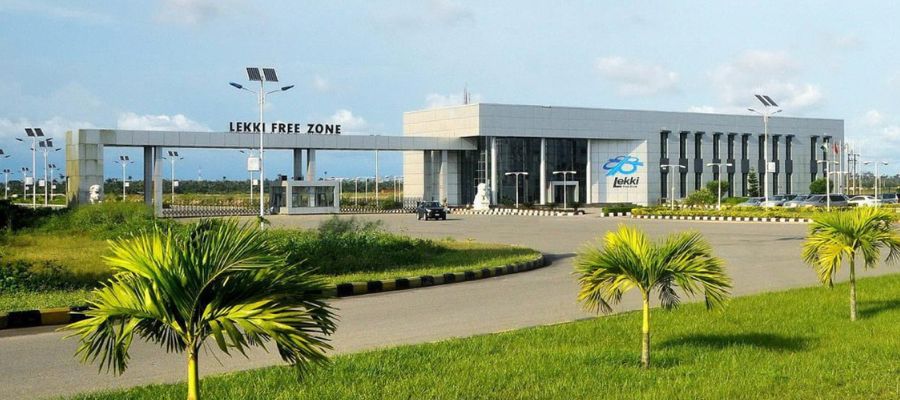
Legal Informer: Effect of Free Trade Zone on the Newly Commissioned Refinery
The Dangote Refinery, situated in Lekki Free Trade Zone, Lagos state, stands as an eminent oil refinery under the ownership of Aliko Dangote. Its grand inauguration took place on May 22, 2023. Once it reaches full operational status, this refinery is projected to possess an impressive capacity for processing approximately 650,000 barrels of crude oil per day. This achievement positions it as the most significant single-train refinery across the globe. Located within the expansive confines of the Lekki Free Trade Zone in Lagos State, the refinery occupies an impressive expanse of 6,180 acres (2,500 hectares). It benefits from a remarkable feat of engineering: the largest sub-sea pipeline infrastructure globally, stretching an impressive 1,100 kilometres in length, efficiently delivers the required crude oil supply. Apart from the notable economic prospects of the refinery, the Refinery’s location has put it in a position to maximize its potential through flexible regulatory
compliance laws. The Refinery is located in a free trade zone. A Free Trade Zone (FTZ) represents a unique economic region within a country that grants specific advantages concerning trade and business policies to companies operating within its boundaries, particularly in terms of taxation. It
can be further described as a designated area within a nation where both domestic and foreign companies can engage in activities such as importing materials, manufacturing goods, exporting products, and providing services, all while being exempt from customary customs duties, taxes, labour regulations, and other bureaucratic requirements.
Nigeria has established several laws and regulations governing free trade zones in the country. One of those laws is the Nigeria Export Processing Zones Act (NEPZA). This Act provides the legal framework for establishing and operating free trade zones in Nigeria. It outlines the powers and functions of the Nigerian Export Processing Zones Authority (NEPZA) and the procedures for setting up and operating within a free trade zone. Another is the Oil and Gas Free Zone Act is a specific legislation in Nigeria that pertains to the establishment and operation of free zones dedicated to the oil and gas industry. Other laws include Customs and Excise (Special Incentives, Provisions, etc.) Act, Companies Income Tax Act, and Immigration Act.
Free trade zones can have several positive effects on businesses located within them and this does not exclude the Dangote refinery. Here are some of the common benefits and impacts of operating in a free trade zone: 1. Tax Incentives: Free trade zones often offer attractive tax incentives, such
as exemptions or reductions in import and export duties, value-added tax (VAT), corporate income tax, and other taxes. This can significantly lower the operational costs for businesses, leading to increased profitability.
2. Customs and Trade Facilitation: Free trade zones typically have streamlined customs procedures, making it easier and faster for businesses to import raw materials and equipment, as well as export
finished goods. Simplified customs processes reduce bureaucratic delays and costs associated with trade compliance.
3. Foreign Investment and Market Access: Free trade zones are designed to attract foreign direct investment (FDI) by offering a favourable business environment. Businesses in free trade zones can easily access international markets and benefit from trade agreements and preferential tariffs, increasing export opportunities.
4. Infrastructure and Logistics: Free trade zones often provide modern infrastructure, including well-developed transportation networks, warehousing facilities, and utility services. This infrastructure can enhance operational efficiency and logistics capabilities, enabling businesses to efficiently move goods and materials within and outside the zone.
5. Regulatory Flexibility: Free trade zones may have more flexible regulations compared to the rest of the country. This can allow businesses to operate with greater flexibility in terms of labour regulations, foreign ownership restrictions, and administrative procedures, providing a conducive
environment for business growth.
6. Cluster Effect and Networking: Free trade zones attract a diverse range of businesses from various industries. This clustering effect can lead to increased collaboration, knowledge-sharing, and networking opportunities among businesses within the zone. It may also create synergies and
opportunities for supply chain integration.
7. Job Creation and Economic Growth: Free trade zones often generate significant regional employment opportunities. The establishment of businesses in the zone can lead to job creation, skills development, and overall economic growth, contributing to the local economy and community.
In conclusion, the legal flexibility afforded within the free trade zone will allow the refinery to benefit from relaxed labour regulations, foreign participation restrictions, and other administrative requirements, thereby providing a conducive environment for business growth and expansion. This regulatory flexibility enhances the refinery’s operational efficiency and enables it to attract foreign direct investment, stimulating economic growth and creating employment opportunities within the region.




